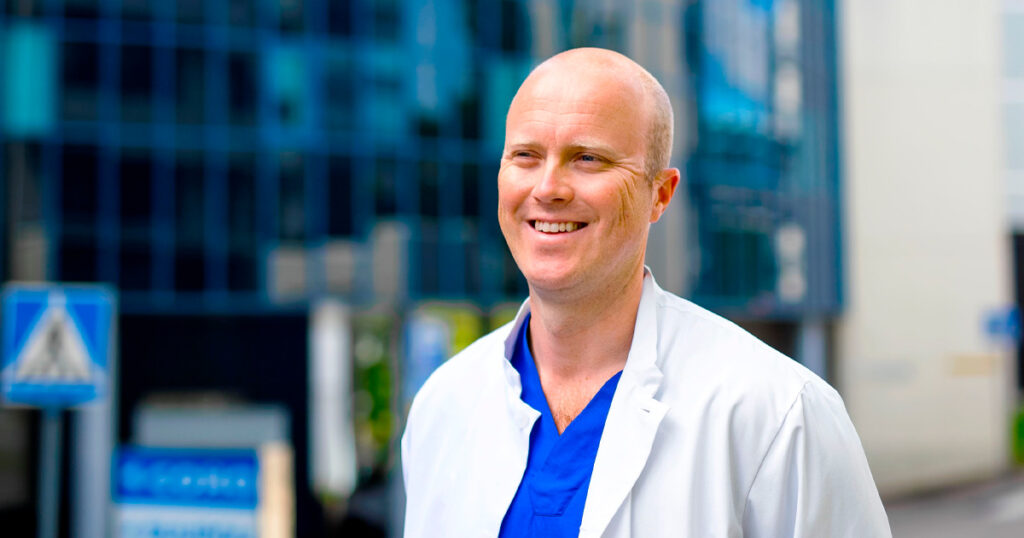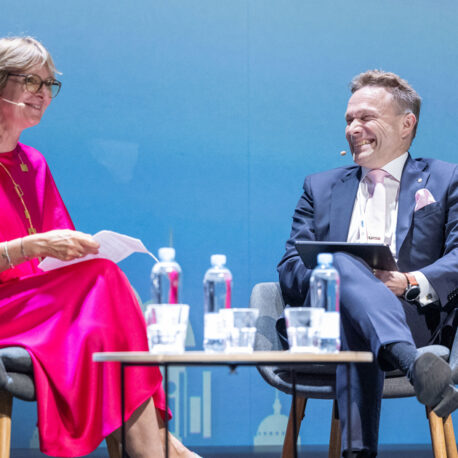
- Finance Finland, the Finnish Motor Insurers’ Centre (LVK) and the Finnish Workers’ Compensation Center have awarded three grants to treatment effectiveness studies.
- The grants were allocated to effectiveness studies that focus especially on developing the treatment and rehabilitation of occupational injuries and diseases and on improving work ability.
- One of the grantees is Ville Mattila, professor at the University of Tampere, who is researching the effectiveness of physiotherapy compared to surgery in the treatment of wrist injuries.
- The Finnish insurance sector is donating a total of €1.5 million to research over the five-year period from 2021 to 2025.
“The study researches the effectiveness of the rehabilitating treatment of triangular fibrocartilage complex injuries. These injuries become fairly common with age, but they are also frequently caused by accidents. We are studying how effective rehabilitating treatment such as physiotherapy is compared to surgery”, says grantee Ville Mattila, professor of surgery at the University of Tampere.
Finance Finland, the Finnish Motor Insurers’ Centre (LVK) and the Finnish Workers’ Compensation Center have donated three grants to treatment effectiveness studies. The grant received by Mattila is €40,000 + €35,000.
The injuries being studied by Mattila’s research group are located in the triangular fibrocartilage complex (TFCC), which is a load-bearing structure of cartilage and ligaments in the wrist. The injury is often caused by some kind of sudden twisting or wrenching movement.
“The increasing use of magnetic imaging has increased the number of TFCC injuries detected. Only some of the injuries are symptomatic. A key question is whether the symptoms are due to natural, age-related degeneration or the result of an accident”, explains Mattila.
The wrist injury study is a continuation of a previous study on upper limb injuries in the elderly, also conducted by Mattila’s research group. Would it be possible to treat wrist injuries with conservative rehabilitation instead of surgery, which is highly stressful for the patient?
“We must consider both the long queues and the costs of treatment: would it be possible to reach the same outcome of treatment with lower costs? Treatment must be innovative. Patients must not only be treated well but also sensibly.”
Effective treatment
Finance Finland, the Finnish Motor Insurers’ Centre (LVK) and the Finnish Workers’ Compensation Center are donating a total of €1.5 million to research over the five-year period from 2021 to 2025. The insurance sector wants to work together with the public sector and other actors to promote effective, accurately targeted medical treatment.
“Avoiding unnecessary operations and focusing the limited resources on effective forms of treatment will not only benefit patients but society too”, says Hannu Ijäs, director of legislation at Finance Finland.
The grantees were selected by the dean of the University of Helsinki Faculty of Medicine based on a proposal made by a faculty-appointed working committee.
Other grantees include Professor Ilkka Helenius from the University of Helsinki and the Helsinki University Hospital, whose study is focused on the effectiveness of treatment in paediatric limb fractures, especially comparing conventional cast or sling treatment with surgical treatment. The grant is €15,000 + €15,000.
Mika Paavola, head of musculoskeletal surgery at the Helsinki University Hospital, received a grant of €45,000 + €30,000 for his research comparing the surgical and non-surgical treatment of upper arm fractures in adults.
Still have questions?
|Contact FFI experts
Looking for more?
Other articles on the topic

Customers are already protected if an insurance company fails – An EU-wide insurance guarantee scheme is not needed

Financial sector’s VAT treatment needs an overhaul, but the Finnish pension system must not be hampered with added tax burden

No insurer will insure a house on fire – California wildfires embody the growing risks of climate change

Data is the raw material of insurance – unwise limits on its use would weaken insurance cover




